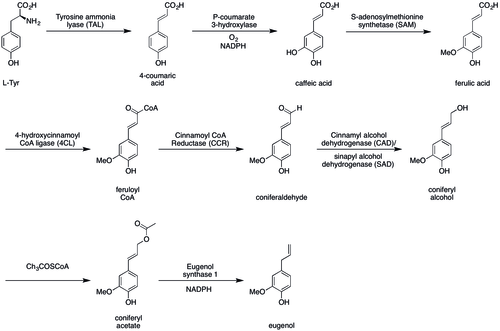
eugenol [yoo-juh-nawl, -nohl] ExamplesWord Origin noun Chemistry, Pharmacology.
- a colorless, oily, spicy, aromatic, very slightly water-soluble liquid, C10H12O2, extracted from certain essential oils, as oil of cloves: used chiefly in perfumery and in dentistry as an antiseptic.
Origin of eugenol 1885–90; New Latin Eugen(ia) name of genus of trees (after Prince Eugène of Savoy; see -ia) + -ol2 Also called eugenic acid. Examples from the Web for eugenol Historical Examples of eugenol
Eugenol, or eugenic acid, C10H12O2, is the chief constituent.
Encyclopaedia Britannica, 11th Edition, Volume 6, Slice 5
Various
The principal constituent of the oil is eugenol, together with caryophyllene and acet-eugenol.
The Handbook of Soap Manufacture
W. H. Simmons
While within certain limits the value of this oil is determined by its eugenol content, oils containing more than 93 per cent.
The Handbook of Soap Manufacture
W. H. Simmons
Oeillet is a combination possessed of a sweet carnation-like odour and having as a basis, eugenol or isoeugenol.
The Handbook of Soap Manufacture
W. H. Simmons
In Germany commercial vanilla is now largely prepared from eugenol, a constituent of oil of cloves.
Birds and Nature Vol. 9 No. 1 [January 1901]
Various
British Dictionary definitions for eugenol eugenol noun
- a colourless or pale yellow oily liquid substance with a spicy taste and an odour of cloves, used in perfumery; 4-allyl-2-methoxyphenol. Formula: C 10 H 12 O 2
Word Origin for eugenol C19: eugen-, from Eugenia caryophyllata kind of clove from which oil may be obtained + -ol 1 eugenol in Medicine eugenol [yōō′jə-nôl′, -nōl′] n.
- An aromatic liquid made from clove oil, used as a dental analgesic.
 Liberal Dictionary English Dictionary
Liberal Dictionary English Dictionary